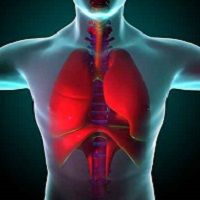Article
COPD: Why Patient Reports Matter
Author(s):
What COPD patients report may be more important in predicting future exacerbations than the exacerbation history, a study found.

What COPD patients report may be more important in predicting future exacerbations than the exacerbation history, according to recent research by Margaret K. Pasquale of Comprehensive Health Insights and Humana, and colleagues. The study was published in the International Journal of Chronic Obstructive Pulmonary Disease in January 2016.
According to the authors, “While there is great interest in incorporating symptomatology, little is known about how patient reported symptoms are associated with future exacerbations and exacerbation-related costs.” In order to explore the topic, they sent either the modified Medical Research Council and the COPD assessment test (CAT) to a random sample of Humana Medicare members who were diagnosed with COPD. They then collected claims data to calculate the cost of exacerbations during the 365-day period following the survey.
Surveys were sent to 4000 COPD patients. Of those, 1159 surveys were returned. The researchers report, “Mean age among survey completers was 72.0, 53.7% female and 91.2% white.” Interestingly, the researchers noted, “the order in which the mMRC and CAT questions were listed affected the completion of the mMRC.” They found that when the CAT was first, more people completed the survey, with an 85% completion rate when the CAT was first, but only a 55% rate when the mMRC questions were first.
The researchers say they found “significant differences in the patient characteristics, which distinguished high-symptom members from low-symptom members, whether the information was obtained from the mMRC or CAT.” Demographic data did not impact those differences.
This study did have significant limitations, including the fact that spirometry results were unavailable, and that the COPD diagnosis relied on claims data and so did not include smoking history, the fact that surveys are subjective, and all the data came from the records of Humana members so cannot be generalized to the greater population. Even given those limitations, the researchers conclude, “The patient reported symptoms captured by the mMRC and CAT instruments contribute important information related to future exacerbations and exacerbation-related costs, beyond that measured by exacerbation history.”


